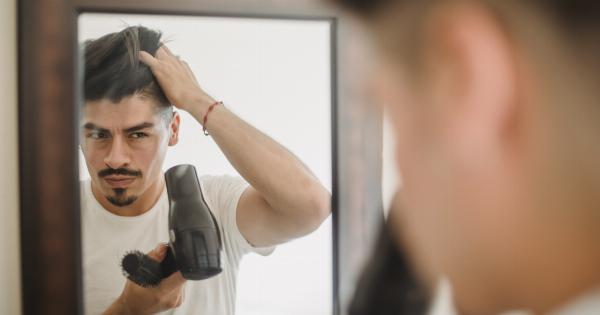Itching is a common sensation that everyone has experienced at some point or the other. It may occur on the skin or in other body parts and organs, such as the scalp, and may have various causes.
In this article, we will be scratching the surface of itching in the skull, its causes, symptoms, and treatments.
What is itching in the skull?
Itching in the skull, also known as scalp itch, is the feeling of irritation, tingling, or burning on the scalp’s surface. It can be a common problem for people of all ages and can range in severity from mild to severe.
Scalp itch can impact daily life, causing discomfort, and even affecting the quality of sleep and focus.
Causes of itching in the skull
There are many possible causes of scalp itch, including:.
Dandruff
Dandruff is a condition that causes the skin on the scalp to flake. Flakes of skin appear as white or grayish patches on the hair and clothes. Dandruff can cause scalp itch as well as irritation and redness.
The exact cause of dandruff is not known, but it may be linked to yeast, stress, cold and dry weather, or hormonal changes.
Head lice
Head lice are small, wingless insects that live on the scalp and feed on human blood. They spread easily through head-to-head contact and can cause scalp itch, redness, and bumps.
People who have head lice may also experience difficulties sleeping and concentrating.
Psoriasis and Eczema
Psoriasis and eczema are two skin conditions that can affect the scalp, causing itchiness, redness, and flaking. Scalp psoriasis can cause silver-white scales and red patches, while scalp eczema can cause thick, scaly patches that may ooze or crust.
Allergies
Allergies to foods, medications, or other substances can cause scalp itch and other symptoms, such as hives, swelling, and difficulty breathing.
Allergic reactions to hair products, such as shampoos, conditioners, and styling gels, can also cause scalp itch and irritation.
Other causes
Other possible causes of scalp itch include stress, hormonal changes, sunburn, insect bites, fungal infections, and skin cancer.
Symptoms of itching in the skull
Symptoms of scalp itch may vary depending on the underlying cause but may include:.
Itchy scalp
The most common symptom of scalp itch is, as the name suggests, an itchy scalp. This may range from mild to severe and may be accompanied by redness, bumps, and flakes.
Tingling or burning sensation
Scalp itch may also cause a tingling or burning sensation on the scalp’s surface, which can be uncomfortable and distracting.
Hair loss
In severe cases, prolonged or intense scalp itch could lead to hair loss, making it a concerning symptom that should be taken seriously.
How to treat itching in the skull
The treatment for scalp itch may depend on its underlying cause and other factors, including age, overall health, and severity. Options may include:.
Over-the-counter treatments
Shampoos, conditioners, and other products designed to treat dandruff or scalp psoriasis may help reduce scalp itch and discomfort. For mild to moderate cases, over-the-counter products may be sufficient.
Prescription medications
In severe cases, a doctor may prescribe prescription-strength treatments, such as medicated shampoos, topical or oral medications, or phototherapy with ultraviolet light.
Home remedies
Certain home remedies can help reduce scalp itch, including tea tree oil, apple cider vinegar, aloe vera, and oatmeal. However, it is essential to consult with a doctor or dermatologist before trying any home remedies.
Preventing itching in the skull
While itchiness on the scalp can be difficult to avoid in some cases, there are ways to reduce the likelihood of experiencing skin irritation or damage:.
Use gentle hair products
Avoid using hair products that contain harsh chemicals and fragrances that can irritate the skin. Opt for gentle, fragrance-free products designed explicitly for sensitive scalps.
Avoid sharing hairbrushes and combs
Head lice can spread quickly from person to person, so avoid sharing hairbrushes, combs, hats, and other items that come into contact with the scalp.
Keep your scalp clean and moisturized
Wash your scalp regularly with a mild shampoo, and then rinse thoroughly to avoid leaving any residue. Dry the scalp gently with a clean towel and avoid rubbing. Apply a moisturizer to keep your scalp and hair healthy and hydrated.
Conclusion
Scalp itch can be an uncomfortable and distracting sensation that can have many causes.
The most effective treatment for scalp itch may depend on the underlying cause, so it is essential to consult a doctor or dermatologist for a proper diagnosis and treatment plan. You can take steps to prevent scalp itch by maintaining good hygiene, using gentle hair products, and avoiding sharing personal items.


























